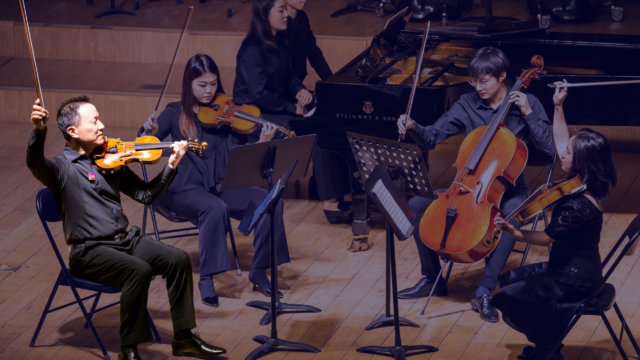Spotlight: Doug Hagerman
May 2025

Doug Hagerman is a music lover who attends over 100 concerts per year, from The Rolling Stones to Rachmaninoff. His hobby is learning about music history. He recently concluded seven years as Chair of the League’s Board of Directors. He was also Chair of his beloved local orchestra, the Milwaukee Symphony Orchestra. Doug is a retired attorney and corporate executive who resides in Naples, Florida and Milwaukee, Wisconsin.
How did you become involved with the League?
When I was the Board Chair of the Milwaukee Symphony Orchestra, we were really in deep trouble. I got a call from the League, and one of the League board members together with an experienced orchestra executive, came to Milwaukee, spent a weekend with my board, and by the end of the weekend, we had a plan. We then executed the plan, and we got out of trouble. The League saved me 14 years ago, and I wanted to pay it forward by helping other orchestras become involved with the League. The League has the unique opportunity to help orchestras that are struggling with tough issues.
The League has the unique opportunity to help orchestras that are struggling with tough issues.
What do you see as the biggest challenge for orchestras now?
For many years, orchestras have been struggling with relevance. We have an art form that is tied to an historic canon that doesn’t speak to everyone in our community, yet we aspire to serve our whole community. We need to figure out how to make the transition from being a fancy ensemble that plays old music at a high level of perfection, to being a flexible, community-oriented music organization that can honestly say that it serves all the musical needs of the community.
What do you think is the League’s biggest impact is for orchestras?
I think the League is really important for its member orchestras for two reasons. First, the League provides shared services—we do lots of things so that every orchestra doesn’t have to do them on their own. We offer professional development and training programs, analysis, data, critical advocacy in Washington, D.C., and so much more. If every orchestra tried to do those things on their own, it would be inefficient and wasteful. We do it for the whole field in a way that is cost effective and executed at a high-level of quality. And second, we are able to point the field toward the ways in which change is important to a thriving future. At the League, we can study what orchestras are trying that is innovative and that might have the potential to make orchestras more valuable or relevant to its community. We produce relevant case studies about what is working, and what is not working. We help make it easier for other orchestras to adopt similar strategies because we are able to show them a clear path to success. When it comes to change, orchestras need the League’s resources to learn how to make change work successfully.
What is it that you want to accomplish through your philanthropy to the League? What do you want your legacy to be?
Orchestras are important to me, and so I’ve chosen to act upon that priority in my life by supporting my local orchestra and doing everything I can to help it thrive with my energy, my financial contributions, and my participation. I’ve done the same thing for the field as a whole by supporting the League with my energy, my financial contributions, and my participation. And we really need both—the people that are dedicated to their individual orchestra, and the people who are dedicated to the field. In my case, I am both, and a lot of other people are both. Anyone who is thinking about the value of the League to their orchestra ought to be thinking about supporting this organization financially.
What are you hoping to accomplish through your planned gift to the League?
I have a planned gift in place for the Milwaukee Symphony, and I also have a planned gift for the League. I view them as tandem gifts that support each other. I feel like my routine, year-by-year—the annual support coupled with the nest egg that I am directing to the League—is the right way to support this organization that is so valuable to me. A little bit now, and a lot later, will add up to a League that has both the ability to fund its programs right now, and thrive into the future.
I have a planned gift in place for the Milwaukee Symphony, and I also have a planned gift for the League. I view them as tandem gifts that support each other.
Related
-
Development & Fundraising
Planned Giving: The League Legacy Society
-
Governance
Governance
Become a member
Thank you for your interest in the League of American Orchestras! We are dedicated to advancing the orchestral experience for all.
Join Now


